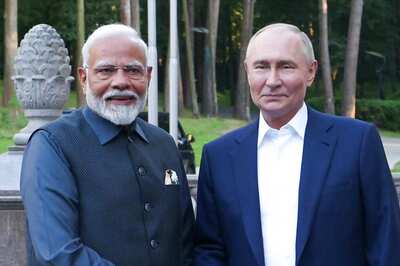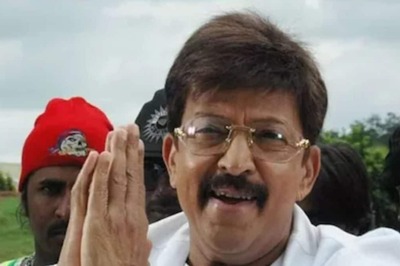
views
The existing mechanisms of social media platforms like Google and Twitter to prevent fake news or hate speech are “inadequate” and their physical presence in India “was a must” for effective remedy against unlawful content on their sites, former RSS idealogue K N Govindacharya has told the Delhi High Court. The submission by Govidacharya has been made in his rejoinder to the replies of Google and Twitter who have opposed his plea seeking directions to the Centre and social media platforms, including Facebook, to ensure removal of fake news and hate speech circulated on online media as well as disclosure of their designated officers in India. Twitter and Google had contended that they have no physical presence in the country, but have appointed designated officers as mandated under the law to liaise with the government and investigating agencies.
They had also said that details of these designated officers cannot be disclosed to the general public as their role is to coordinate with government authorities with regard to removal of illegal content as per law or disclosure of user information. They had also contended that they have in-built mechanisms and systems to regulate and stop unlawful content on their platforms. Opposing the contentions of Google and Twitter, Govindacharya, represented by advocate Virag Gupta, has contended that both have huge business operations in India and also regularly enter into agreements with government authorities.
However, when it comes to taking responsibility for any unlawful content, they shift the onus on to their parent company which is abroad. “It is very interesting that in absence of any physical presence in India, how Twitter and other foreign digital giants are entering into agreements with Indian authorities,” the rejoinder, filed through advocates Gaurav Pathak and Surya Joshi, has said.
It also said that when the central government can disclose the designated officers appointed by it, why were the social media platforms reluctant to do so. Regarding the inadequacy of the existing mechanisms of the social media platforms to regulate content on their sites, the rejoinder claims that in October Twitter allegedly showed Leh as being part of China.
Besides that, Govindacharya has also referred to a Delhi High Court order in a criminal matter where it has been noted that request sent by the police to Whatsapp for information about some numbers and groups received no response from the company. Therefore, “for any effective remedy, the physical presence of intermediary in India is a must”, he has contended. The rejoinder also contended that while the social media platforms claimed that content is posted on their sites on as is basis, “in reality they censor content”, hide it and also add warnings and disclaimers.
Thus, they are not just conduits but are also “exercising editorial control”, he has claimed. Govindacharya has also moved an application, in his petition, seeking removal of illegal groups like ‘bois locker room’ from social media platforms for the safety and security of children in cyberspace.
Read all the Latest News and Breaking News here


















Comments
0 comment